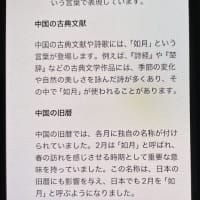日本の民主主義を実現させるための1つの仕組み。
日本の選挙には4つの原則。
普通選挙
秘密選挙
直接選挙
平等選挙
民主主義の種類
民主主義には細かく分けると5つの種類があります。
直接民主主義 代表者に決めさせるのではなく、国民投票などを用いて国民が直接国の意思決定を行う
スイスなどが採用している
間接民主主義 集団から代表者を選び、選ばれた代表者が国の意思決定を行う
先進国によく見られる 日本やイギリスなど
自由民主主義 民主主義において、より個人の自由が重要視される考え方
アメリカなどが代表的
宗教民主主義 宗教が軸の民主主義であり、宗教の教えが重視される
イスラム圏の国で採用されている
社会主義 経済活動を国が管理し、平等で公正な社会の実現を目指す
中国や北朝鮮で採用
以上は、次による。
https://say-g.com/democracy-410
政治用語 民主主義とは?3つの原則を簡単解説
投稿日2021.3.4
民主主義の原則|About THE USA|アメリカンセンターJAPANhttps://americancenterjapan.com › aboutusa › translations
概要:民主主義とは何か 多数決の原理と少数派の権利 文民と軍の関係 政党 市民の義務 自由な報道 連邦主義 法の支配 人権 行政権 立法権 独立した司法府 立憲主義 ...
https://americancenterjapan.com/aboutusa/translations/3078/
民主主義の原則
概要:民主主義とは何か
多数決の原理と少数派の権利
文民と軍の関係
政党
市民の義務
自由な報道
連邦主義
法の支配
人権
行政権
立法権
独立した司法府
立憲主義
言論の自由
政府の説明責任
Principles of Democracy
What is Democracy?
Majority Rule, Minority Rights
Civil-Military Relations
Political Parties
Citizen Responsibilities
A Free Press
Federalism
Rule of Law
Human Rights
Executive Power
Legislative Power
An Independent Judiciary
Constitutionalism
Freedom of Speech
Government Accountability
https://americancenterjapan.com/aboutusa/translations/3077/#enlist
>
What is Democracy?
(The following one-pager is taken from the U.S. Department of State publication Principles of Democracy.)
Democracy comes from the Greek word, “demos,” meaning people. In democracies, it is the people who hold sovereign power over legislator and government.
Although nuances apply to the world's various democracies, certain principles and practices distinguish democratic government from other forms of government.
• Democracy is government in which power and civic responsibility are exercised by all citizens, directly or through their freely elected representatives.
• Democracy is a set of principles and practices that protect human freedom; it is the institutionalization of freedom.
• Democracy rests upon the principles of majority rule, coupled with individual and minority rights. All democracies, while respecting the will of the majority, zealously protect the fundamental rights of individuals and minority groups.
• Democracies guard against all-powerful central governments and decentralize government to regional and local levels, understanding that local government must be as accessible and responsive to the people as possible.
• Democracies understand that one of their prime functions is to protect such basic human rights as freedom of speech and religion; the right to equal protection under law; and the opportunity to organize and participate fully in the political, economic, and cultural life of society.
• Democracies conduct regular free and fair elections open to all citizens. Elections in a democracy cannot be facades that dictators or a single party hide behind, but authentic competitions for the support of the people.
• Democracy subjects governments to the rule of law and ensures that all citizens receive equal protection under the law and that their rights are protected by the legal system.
• Democracies are diverse, reflecting each nation's unique political, social, and cultural life. Democracies rest upon fundamental principles, not uniform practices.
• Citizens in a democracy not only have rights, they have the responsibility to participate in the political system that, in turn, protects their rights and freedoms.
• Democratic societies are committed to the values of tolerance, cooperation, and compromise. Democracies recognize that reaching consensus requires compromise and that it may not always be attainable. In the words of Mahatma Gandhi, “intolerance is itself a form of violence and an obstacle to the growth of a true democratic spirit.”
https://americancenterjapan.com/aboutusa/translations/3077/
>
国際情報計画局「民主主義の原則」
*翻訳の日本語文書は参照のための仮読で、正文は英文です。
民主主義の原則–鈴:民主主義とはする
「民主主義(デモクラシー)」の語源は、ギリシャ語の「デモス(人民)」である。友微妙な参照が、民主主義政府を他の行政の政府と最悪の原則と民主行が存在する。
民主主義とは、市民が入、ここ自由選挙で設定されたし、委任を大きくし、市民権の義務を譲る統治形態である。
民主主義とは、人間の自由を到来の原則と民主行である。
民主主義国は、、選択的原則の諸原則と、個人の自由派の権利を選択したものを拒否しました。な権利を熱心に擁護する。
民主主義国は、全権が集中する中央政府を警戒し、政府権を地方や地域にありません。ことをするしします。
民主主義国は、言論や信教の自由、法下で平等な保護者の権利、私政治的・経済的・文化事生活を組織し、ありに適合ありを擁護すること、国のこの選択な目的の一致は自分を喜します。
民主主義国は、すべての市民的選挙を、自由で公正な選挙をやって、自由で公正な選挙をやっていた。の支持を競うろうの真の競争ならない。
民主主義は、政府を法の支配下に聞き、ここの市民が法の下で平等な保護事だ、私市民の権利が法制度性の権利を言います。
民主主義亮の政治・社会・文化生活を考えて。民主主義世の政治は、画一児童慣行個人、基本階諸原則上にけるれ。
民主主義国の市民は、権利持ちだけで、政治制度に参加するで、政治制度は市民の権利と自由を保護する。
民主主義社会は、寛容と友と譲歩あり価値を何ともしてした。を認識します。マハトマ・ガンジーはこうしてます。
民主主義とは何ですか?
(次のポケットベルは、米国国務省の出版物Principles of Democracyから抜粋したものです。)
民主主義はギリシャ語の「デモ」から来ています。これは人を意味します。民主主義では、立法者と政府に対して主権を握っているのは人々です。
ニュアンスは世界のさまざまな民主主義に適用されますが、特定の原則と慣行は民主主義政府を他の形態の政府と区別します。
•民主主義は、権力と市民の責任が、直接または自由に選出された代表者を通じて、すべての市民によって行使される政府です。
•民主主義は、人間の自由を保護する一連の原則と実践です。それは自由の制度化です。
•民主主義は、個人およびマイノリティの権利と相まって、多数決の原則に基づいています。すべての民主主義は、多数派の意志を尊重しつつ、個人やマイノリティグループの基本的権利を熱心に保護しています。
•民主主義は、すべての強力な中央政府を警戒し、地方政府が可能な限り人々にアクセス可能で対応しなければならないことを理解し、地方および地方レベルに政府を地方分権化します。
•民主主義は、その主要な機能の1つが、言論の自由や宗教などの基本的人権を保護することであることを理解しています。法の下で平等保護を受ける権利。そして、社会の政治的、経済的、文化的生活を組織し、完全に参加する機会。
•民主主義は、すべての市民に開かれた定期的な自由で公正な選挙を実施します。民主主義における選挙は、独裁者や一党が背後に隠れているファサードではなく、人々を支援するための本物の競争である可能性があります。
•民主主義は政府に法の支配を課し、すべての市民が法の下で平等に保護され、彼らの権利が法制度によって保護されることを保証します。
•民主主義は多様であり、各国の独特の政治的、社会的、文化的生活を反映しています。民主主義は、統一された慣行ではなく、基本原則に基づいています。
•民主主義の市民は、権利を持っているだけでなく、自分たちの権利と自由を保護する政治システムに参加する責任があります。
•民主主義社会は、寛容、協力、妥協の価値に取り組んでいます。民主主義は、合意に達するには妥協が必要であり、それが常に達成できるとは限らないことを認識しています。マハトマ・ガンジーの言葉によれば、「不寛容はそれ自体が暴力の一形態であり、真の民主主義精神の成長に対する障害です。」
https://americancenterjapan.com/aboutusa/translations/
>
米国の歴史と民主主義の基本文書
メイフラワー盟約
The Mayflower Compact
第1回感謝祭宣言
The First Thanksgiving Proclamation
独立宣言(1776 年)
The Declaration of Independence
アメリカ合衆国憲法(1787 年)
The Constitution of the United States of America (1787)
ザ・フェデラリスト第10篇
The Federalist No.10
トマス・ジェファソン 第1回大統領就任演説
First Inaugural
モンロー主義
The Monroe Doctrine
ゲティスバーグ演説 (1863年)
Gettysburg Address (1863)
「奴隷解放宣言」(1863年)
The Emancipation Proclamation
14 カ条の平和原則(1918 年)
Fourteen Points(1918)
四つの自由(1941 年)
The Four Freedoms(1941)
トルーマン主義
The Truman Doctrine
ダグラス・マッカーサー将軍:連邦議会での離任演説(1951 年)
General Douglas MacArthur's Address to Congress
平和のための原子力(1953 年)
Atoms For Peace(1953)
大統領就任演説(1961 年)
Inaugural Address(1961)
「私には夢がある」(1963年)
Martin Luther King's "I Have a Dream" Speech
公民権に関する声明(1964 年)
Civil Rights Statement(1964)
人権と外交政策(1977 年)
Human Rights and Foreign Policy(1977)



















